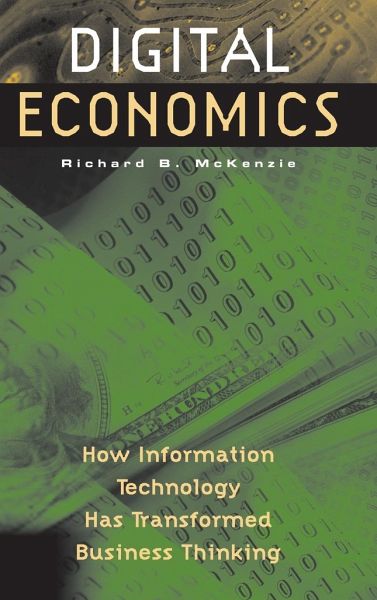
Digital Economics
How Information Technology Has Transformed Business Thinking
Versandkostenfrei!
Versandfertig in 1-2 Wochen
88,99 €
inkl. MwSt.

PAYBACK Punkte
44 °P sammeln!
The digitization of such traditional goods as books, music, and movies, in combination with traditional digital productions like software, has given rise to new twists and turns in economic arguments. The primary reasons for these digital-led developments in economic theory are that digital goods often exhibit network effects-consumer benefits that grow with the spreading use of certain goods-and that digital products often have low or negligible reproduction costs. McKenzie describes how the advent of digital goods has forced changes in firms' production and pricing strategies, and how it has...
The digitization of such traditional goods as books, music, and movies, in combination with traditional digital productions like software, has given rise to new twists and turns in economic arguments. The primary reasons for these digital-led developments in economic theory are that digital goods often exhibit network effects-consumer benefits that grow with the spreading use of certain goods-and that digital products often have low or negligible reproduction costs. McKenzie describes how the advent of digital goods has forced changes in firms' production and pricing strategies, and how it has led to the reassessment of an array of public policies, from privacy to piracy.














